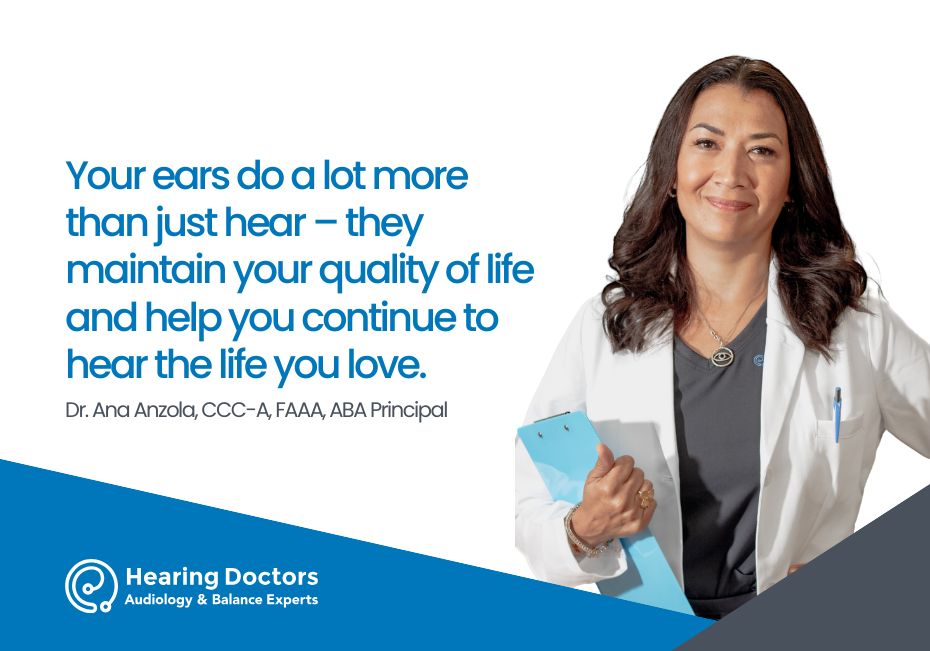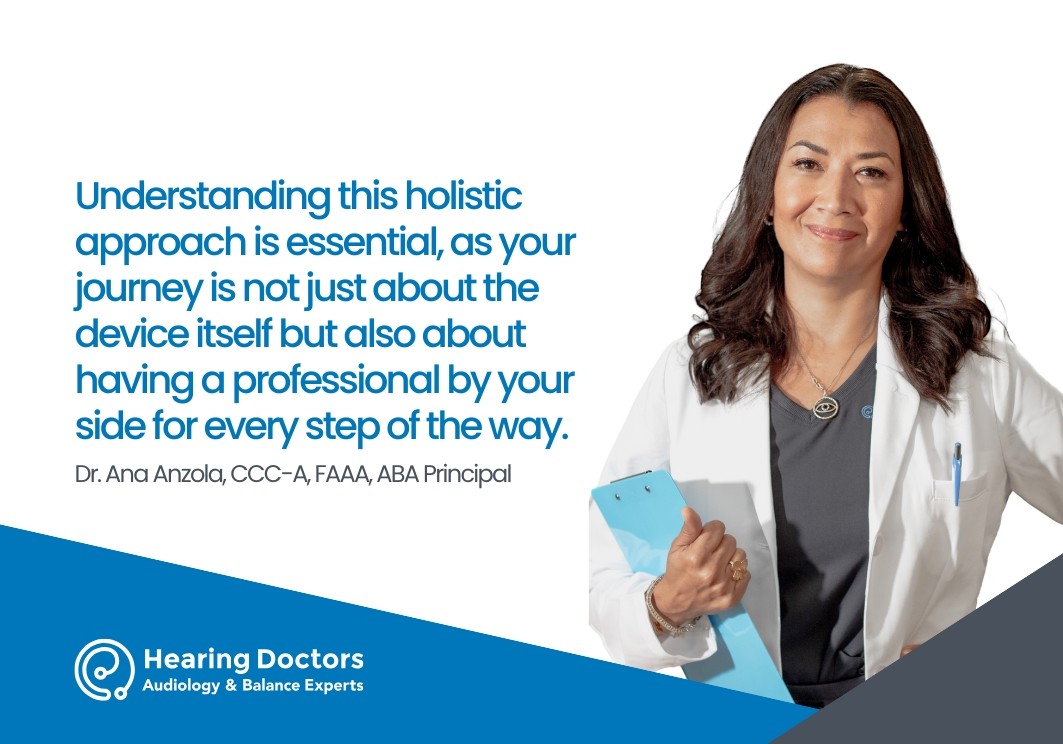Dr. Ana
Anzola, CCC-A, FAAA, ABA Principal
It is a common misconception that hearing aids are not necessary for mild cases of hearing loss. However, hearing aids may be appropriate and often extremely helpful in cases of mild hearing loss.
Consider Functional Impact
Each person should be considered on an individual basis, in particular how their hearing loss impacts their functioning. In most cases where there are listening difficulties noted day to day, there is room for improvement through hearing devices.
Hearing Loss Worse In Certain Environments
We recently worked closely with a patient with mild hearing loss who works as a therapist with small children. Although she functions well with her hearing loss in most environments, she notices herself straining to hear the children’s voices.
Missing Conversation Is Unsettling
She reports feeling unsettled that she may misunderstand or not be able to hear the children during their sessions. However, she was under the impression that her hearing loss wasn’t bad enough for hearing aids. After an evaluation and consultation, realistic expectations about what hearing aids could provide were discussed in detail.
Thrilled With Improvement From Hearing Aids
The patient ended up pursuing hearing devices and has been thrilled with the improvement in her hearing. She feels much more comfortable and confident in her abilities at work and no longer worries about misunderstanding the children.
Why Miss Out On The Sounds Of Life?
Most people wait 7 to 10 years from the time they notice a hearing loss before they see an audiologist about it. During that time they may be missing out on conversations, the finer sounds like rustling leaves and birds singing, and withdrawing socially to compensate for their impaired hearing. Every day we hear patients with new hearing aids exclaim “I wish I had done this sooner!” If you suspect you have a hearing loss - even a mild one, why wait any longer?
Come In For A Free Consultation
I invite you to come in for a free hearing screening and consultation. You may not need hearing aids, but at least you will have a baseline measurement of your hearing ability to compare against in the future.
Popular Blogs

Jun 3, 2025
Dr. Ana
Anzola, CCC-A, FAAA, ABA Principal
Understanding Types of Hearing Loss: Sensorineural, Conductive, and Mixed

May 21, 2025
Dr. Ana
Anzola, CCC-A, FAAA, ABA Principal
What Impact Is Artificial Intelligence Having on Hearing Aid Technology?

Apr 28, 2025
Dr. Ana
Anzola, CCC-A, FAAA, ABA Principal
Do You Think You’re Too Young for Hearing Loss?

Apr 15, 2025
Dr. Ana
Anzola, CCC-A, FAAA, ABA Principal
The Best Hearing Aids in 2025: Insights From a Doctor of Audiology


